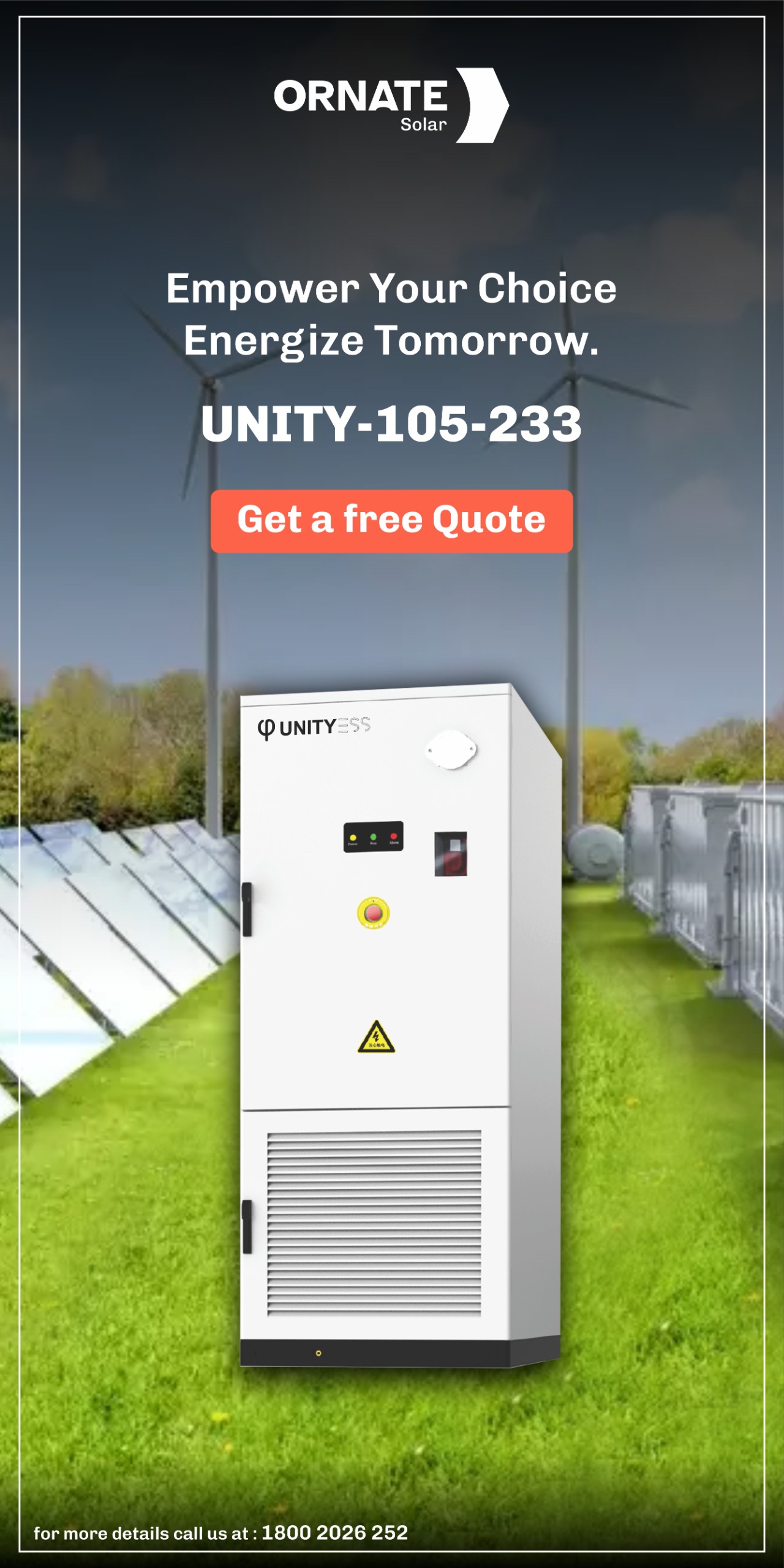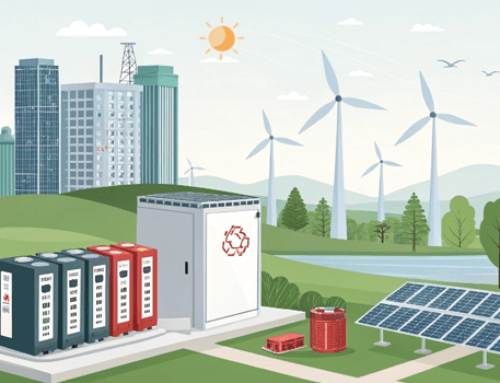

India is powering forward with its solar ambitions. From residential solar rooftops to sprawling industrial campuses, the country is witnessing unprecedented adoption of solar energy. However, a significant challenge emerges as renewable generation increases — how do we store and manage this energy efficiently?
This is where a Battery Energy Storage System (BESS) in india comes into play. Generation alone isn’t enough. In India, where power supply can be intermittent, battery energy storage solutions are essential for a reliable renewable future.
In this blog, we explore what BESS is, why it matters for different energy users, and how it supports a smarter, more reliable energy ecosystem.
What Is BESS?
A Battery Energy Storage System in india is an advanced solution that stores energy for later use. These systems use rechargeable batteries to capture electricity from the grid or renewable sources.
Unlike traditional inverters or UPS systems, BESS is far more intelligent:
- Stores excess solar energy generated during the day
- Supplies power when demand is high or solar isn’t available
- Responds to grid signals and supports frequency regulation
- Optimizes energy usage with real-time monitoring
This makes BESS a central component in modern solar setups — not just a backup, but a full-fledged energy management system.
The most widely used technology is lithium-ion batteries, available in compact units for residential and C&I use or large container-sized units for utility-scale projects.
The most widely used battery technology is lithium-ion. Such batteries are available in both large container-size units for utility-scale projects and compact units for C&I and residential applications.
Why BESS Makes Sense for Residential & C&I Consumers in India
1. Load Shifting & Cost Savings
BESS allows users to charge batteries during off-peak hours when electricity is cheaper and use stored power during peak hours, reducing electricity bills. For industries, this process, called peak shaving, can lead to significant cost savings.
2. Reliable Power Supply
Power disruptions due to voltage fluctuations or outages can affect production and damage equipment. With BESS, businesses and industries enjoy uninterrupted power, minimizing losses and protecting critical systems.
3. Energy Independence for Homes
For homeowners, BESS ensures that solar energy generated during the day is available at night, reducing dependency on rising electricity tariffs and unreliable grids.
BESS Applications Across Segments
| Segment | Benefits |
|---|---|
| Residential | Nighttime solar usage, energy independence, and reduced electricity bills |
| Commercial & Industrial | Load shifting, demand charge reduction, and uninterrupted operations |
| Utility-Scale | Grid balancing, storing surplus renewable energy, peak demand management |
BESS is highly adaptable and can be tailored to meet energy needs of homes, industries, and large utilities alike.
BESS Market in India: Trends & Opportunities
India’s energy storage market is growing rapidly, supported by policy incentives and renewable integration targets:
- Government Support: Production Linked Incentive (PLI) scheme and time-of-day tariffs encourage domestic manufacturing and adoption
- Utility Projects: NTPC, SECI, and state DISCOMs are implementing large-scale BESS projects to stabilize the grid
- Renewable Goals: With India targeting 500 GW non-fossil fuel capacity by 2030, BESS ensures smooth integration of intermittent energy sources
Insight: Commercial hubs, industrial clusters, and solar parks are leading adoption, making India one of the fastest-growing BESS markets globally.
Choosing the Right Battery Energy Storage System
Key considerations for selecting the right BESS:
- Energy Load & Usage – Determine daily consumption and backup needs
- Battery Chemistry – Lithium Iron Phosphate (LFP) batteries offer longer life and higher safety
- Cycle Life & Depth of Discharge – Higher values mean long-lasting performance
- Integration & Software – Smart BMS ensures monitoring, optimization, and remote control
Conclusion: The Smarter Way to Power the Future
Battery Energy Storage Systems in india are redefining how India generates, uses, and manages energy. As solar adoption continues to soar, storage will become not just an advantage but a necessity.
BESS is no longer limited to emergency backup—it’s a key player in energy strategy. Whether you’re a homeowner, business, or part of a utility, investing in battery storage means investing in reliability, savings, and control
FAQs
Also Read:
How Battery Energy Storage Systems (BESS) Are Powering India’s Renewable Future
BESS for C&I Consumers in India: Benefits, Policies & Use Cases
Umang Lithium Battery: Reliable Energy Storage for Homes and Businesses
About Ornate Solar
Ornate Solar is a leading solar company with 10 years of experience in the industry and a mission to reimagine solar installation worldwide.
By partnering with best-in-class solar brands and developing high-quality solutions (solar panels, solar inverters, accessories, InRoof), we deliver solutions that are modern, reliable, and effective.
Ornate Solar is a leading BESS manufacturer in India. We have developed UnityESS, an advanced energy storage solution designed to provide reliable power and true energy independence.
If you are looking for high-quality solar solutions, reach out to us at 1800 2026 252 to discuss your options.











Leave A Comment